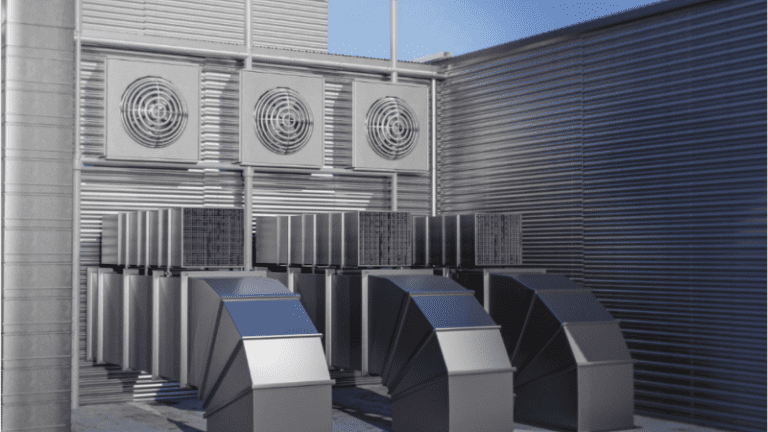A commercial compressor draws the most energy of the day on startup. As it cycles, the start of each cycle creates a spike in the power it draws. Reducing the cost of ownership means optimizing your system so it doesn’t start and stop too frequently. The same is true of a residential HVAC system.
In a commercial refrigeration system, the commercial compressor runs continuously. Any time the compressor cycles off, it represents a problem that needs immediate attention. The same is not true of a commercial HVAC system, no matter how complex. It will cycle on and off over time as it reaches the target temperature.
Frequent cycling of commercial compressors leads to some serious issues:
1. Increased Wear and Tear
Even sophisticated compressor designs with few moving parts still absorb some mechanical stress when they cycle on. The impact of this problem is most noticeable with a standard reciprocating compressor, but others aren’t immune. This can lead to more frequent and costly repairs.
2. Decreased Efficiency
Cycling is an efficiency problem in and of itself. It means you are drawing a much larger amount of power on average to do the same work. But the effects will get worse over time. That will raise the cost of ownership by decreasing the commercial compressor efficiency even in the middle of a cycle.
3. Shorter Equipment Lifespan
A shorter overall lifespan for your equipment is the biggest problem that can develop. It may force you to spend thousands of dollars on a commercial compressor replacement earlier than you otherwise would. Today’s commercial compressors should last eight to ten years with appropriate maintenance.
How Can You Tell if Your Commercial Compressor Is Cycling Too Much?
The best way to know if your commercial compressor is cycling too much is to know how your equipment acts when all is well. “Too much” can only be determined relative to the baseline for your system. That said, even the most conscientious professionals usually don’t sit and count cycles throughout the day
Let’s consider some of the ways to figure it out:
1. Onboard Diagnostics
You have two main options for digital compressor diagnostics. First, you might be using a programmable digital thermostat. In this case, the thermostat may be able to tell you exactly when the system cycles off and on and how long it runs when it is operating normally. That really takes the mystery out of the situation fast.
The second option is your building management system. Building management systems often work with your digital thermostat, but they can also work autonomously through the use of their own sensors. They are more likely to have detailed reports and to flag unusual cycling behavior for your review before you even notice it.
2. Review Your Operational Records
If your commercial compressor is cycling on and off too much, then you will begin to feel it in your electric bill sooner rather than later. One way to uncover unusual behavior is to compare your electricity usage from the same period last year and see if there’s a significant increase.
3. Listen and Get Feedback
When run times are short, you’re more likely to notice them simply because they will be obvious. The average cycle time varies greatly based on the size of your facility and the configuration of your system, but a cycle between 20 minutes and 45 minutes is normal, while longer or shorter ones can be cause for concern.
Another way to get feedback is to ask co-workers or solicit comments from the public.
What Are the Possible Causes of Commercial Compressor Cycling?
While cycling can be a sign of a looming compressor breakdown, there are other possibilities:
-
Electrical Issues: Breakers could be tripping during operation, causing cycles to halt frequently.
-
Thermostat Malfunction: The thermostat may need calibration or cleaning off of its sensors.
-
Dirty Coils: Dirty evaporator or condenser coils can cause overheating and interrupt cycles.
-
Clogged Air Filters: Because of restricted airflow, clogged filters can also cause overheating.
-
Low Refrigerant: Compressors may shut down, cool off, and then restart if the refrigerant is low.
Prepare for Commercial Compressor Replacement Early
Whatever the case may be, it’s wise to enact root cause analysis and get to the bottom of the problem as soon as possible. You may need to perform repairs to extend the life of your compressor. Ultimately, aging units will need to be replaced, and it’s always best to have a plan in mind before that happens.
With a remanufactured commercial compressor, the replacement process is easier than ever. You can source a replacement compressor faster because remanufacturing uses your existing commercial compressor core. That cuts months off procurement time while reducing waste. Once the unit is completely re-engineered, it is ready to meet your needs and commitments for another eight to ten years.












